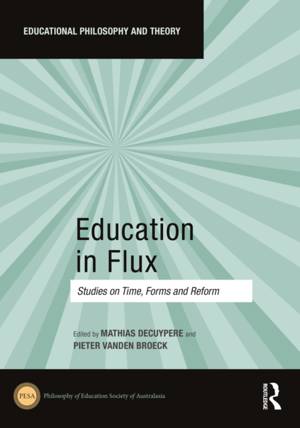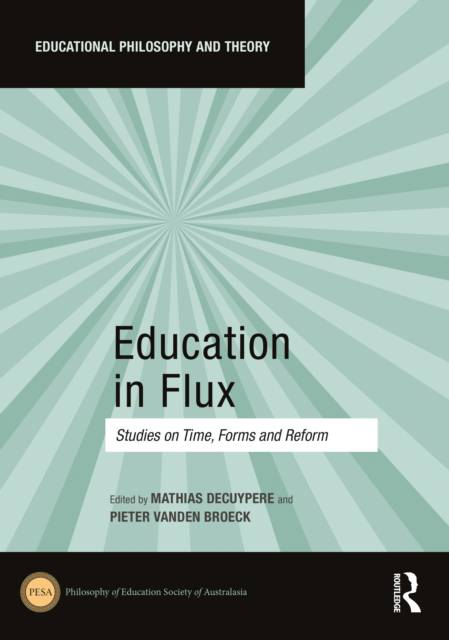
- Afhalen na 1 uur in een winkel met voorraad
- Gratis thuislevering in België vanaf € 30
- Ruim aanbod met 7 miljoen producten
- Afhalen na 1 uur in een winkel met voorraad
- Gratis thuislevering in België vanaf € 30
- Ruim aanbod met 7 miljoen producten
Education in Flux
Studies on Time, Forms and Reform
Omschrijving
This book aims to gain a better grasp of how education, both inside and outside school, is shaped by our understanding of time. Over the last decennia, both education and policymaking have undergone radical changes, transcending them far beyond the historical limits of the modern nation-state where their contemporary shape originated. The often-discussed shift from government to governance in education policy, together with the crystallization of newly emerging spaces of transnational education, are illustrative in this respect. The national grammar of schooling is set out to arrange time in class hours, schooldays and yearly cohorts. Its curricula establish what the past should teach to future generations. But when education shifts perspectives towards transnational, European or even global levels, this past increasingly seems to lose relevance when understood as continuity and as tradition. Instead, in education as in policymaking, the discontinuity expected to result from a future deemed open and undetermined becomes an endless resource for the development of new political and educational (re)forms.
How are contemporary education and education policy creating and reacting to particular forms of presents, pasts or futures? How do specific forms of education (such as lifelong learning) relate to our shifting understandings of time? How are progress, acceleration and time related in educational reform processes? Through showing the contingency of time-making in educational practices, the contributions to this book seek to answer these questions and thus open avenues to think education and time anew.
The chapters in this book were originally published as a special issue of the journal Educational Philosophy and Theory.
Specificaties
Betrokkenen
- Uitgeverij:
Inhoud
- Aantal bladzijden:
- 110
- Taal:
- Engels
- Reeks:
Eigenschappen
- Productcode (EAN):
- 9781032021003
- Verschijningsdatum:
- 15/12/2021
- Uitvoering:
- Hardcover
- Formaat:
- Genaaid
- Afmetingen:
- 175 mm x 246 mm
- Gewicht:
- 379 g

Alleen bij Standaard Boekhandel
Beoordelingen
We publiceren alleen reviews die voldoen aan de voorwaarden voor reviews. Bekijk onze voorwaarden voor reviews.










